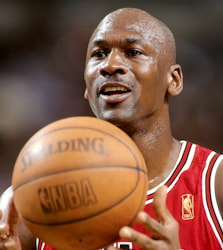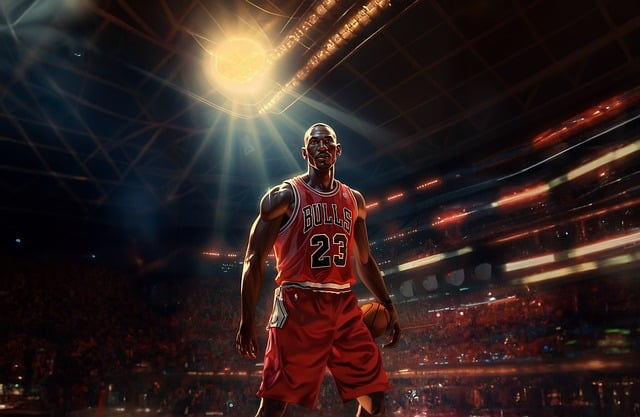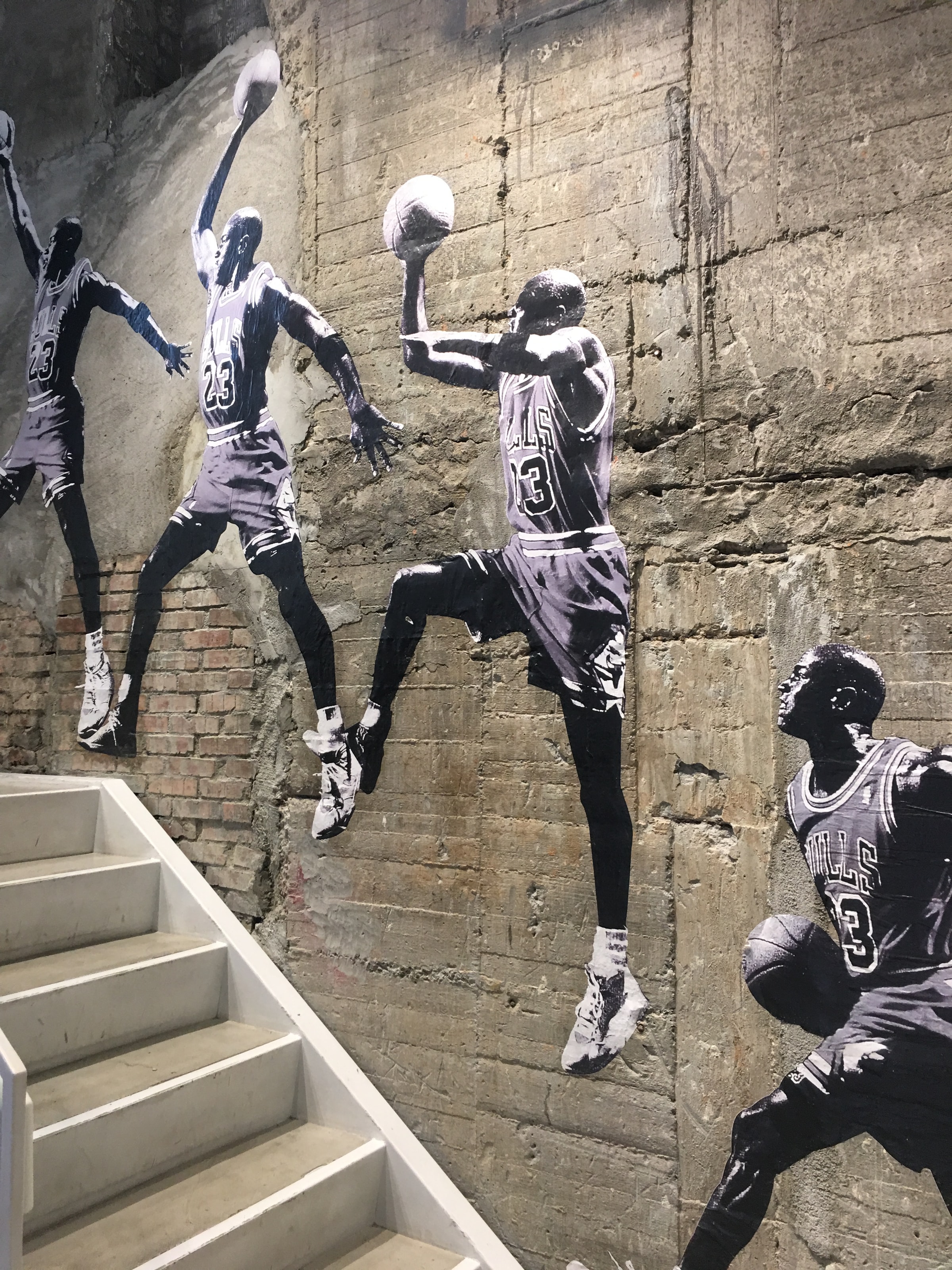Of all The Last Dance episodes, Episode 10 was my favorite. In the opening minutes, Mark Vancil, author of Rare Air, talks about Michael Jordan’s mindfulness secret, which is his exceptional ability to be in the moment.
“Most people struggle to be present… Most people live in fear because they project the past. Michael’s a mystic. He was never anywhere else. His gift was not that he could jump high, run fast, shoot a basketball; his gift was that he was completely present and that was the separator… A big downfall of a lot of players who are otherwise gifted is thinking about failure. Michael didn’t allow what he couldn’t control to get inside his head.
He would say, ‘Why would I think about missing a shot I haven’t even taken yet?’”

Even though the documentary didn’t dig into the concept of mindfulness, it was there in plain view from the first moments of that episode. Relentless preparation, competitiveness, focus, and pure natural talent are what most people talk about when they talk about Jordan. Not as many speak about his incredible mindfulness training and discipline in staying in the present moment.
“A lot of athletes think the trick to getting better is just to work harder. But there is great power in non-action and non-thinking,” Phil Jackson writes in the Foreword in The Mindful Athlete.
In the book, author George Mumford talks about being hired by Phil Jackson to help the Chicago Bulls learn and apply mindfulness techniques to help them reach a place that Mumford calls “the zone.” He recalled this memory of Jordan from game six of the 1998 NBA Championship Finals between the Chicago Bulls and the Utah Jazz (also featured in Episode 10 of the documentary.) There were eighteen seconds left in the game and the Bulls were down one point. Jordan wills his way to getting the ball in his hands and makes the game-winning shot giving the Bulls their sixth championship—and notably their second three-peat.

Here’s what Michael Jordan had to say after the game:
“When I got that ball, my thoughts were very positive. The crowd gets quiet, and the moment starts to become the moment for me. That’s what we’ve been trying to do…that’s part of that Zen Buddhism stuff. Once you get into the moment, you know when you are there. Things start to move slowly, you start to see the court very well. You start reading what the defense is trying to do. I saw that moment. When I saw that moment and the opportunity to take advantage of it…I never doubted myself. I never doubted the whole game. We were hanging too close.” Michael Jordan
Jordan’s personal journey with mindfulness played a crucial role in enhancing his performance and self-awareness on the court.

The Power of Mindfulness in Sports
Mindfulness has become a game-changer in the world of sports, with many top athletes and teams incorporating mindfulness practices into their training regimens. By being completely present in the moment, athletes can improve their focus, concentration, and overall performance. Michael Jordan, widely considered one of the greatest basketball players of all time, credits mindfulness with helping him stay focused and composed under pressure. His mindfulness coach, George Mumford, worked with him to develop a mindfulness practice that helped him achieve a state of pure performance.
Mumford’s influence on Jordan is evident in the way Jordan approached critical moments in games. By training his mind to stay in the present, Jordan was able to block out distractions and perform at his best when it mattered most. This ability to be completely present is what set him apart from other players and contributed to his legendary status in the NBA.
What is mindful meditation?
Mindfulness is being completely and totally present in the moment. Whereas most people tend to think about multiple things at any given time, contemplate the past or the future, or become rattled by emotion, mindfulness is being fully present in the here and now.
So what is mindful meditation? I like to call it, “coming back to center.” It is paying attention to the present on purpose and without judgment. It’s letting go of the past and the future. It’s connecting to yourself right now.
There are lots of mindful meditations available for athletes. It doesn’t have to be complicated. You can focus on your breath by doing a simple concentration technique: Focus on your inhale, your exhale, and the space in between the breaths. This is called a 3-point concentration meditation.
Mindfulness in Action: George Mumford’s Method
George Mumford’s method of mindfulness training emphasizes the importance of being completely present in the moment. He teaches athletes to focus on their breath and let go of distractions, allowing them to access a state of flow and perform at their best. Mumford’s approach has been used by top athletes such as Michael Jordan and Kobe Bryant, who have both credited mindfulness with helping them achieve success on the court.
Mumford’s techniques involve simple yet powerful practices like meditation and breath control. By incorporating these practices into their daily routines, you can become a mindful athlete by training your mind to stay focused and calm, even in high-pressure situations. This mental discipline not only enhances your performance but also contributes to your overall well-being and resilience.
Benefits of Mindfulness for Athletes
The benefits of mindfulness for athletes are numerous. By practicing mindfulness, athletes can improve their focus, concentration, and overall performance. Mindfulness can also help athletes manage stress and anxiety, leading to improved mental toughness and resilience. Additionally, mindfulness can help athletes develop a greater sense of self-awareness, allowing them to better understand their thoughts, emotions, and behaviors.
Phil Jackson, former coach of the Chicago Bulls, once said, “Mindfulness is the key to unlocking an athlete’s full potential.”
Under his guidance, the Bulls incorporated mindfulness practices into their training, which played a significant role in their success. By practicing mindfulness, athletes can gain a competitive edge and achieve success in their sport, just as Michael Jordan did during his illustrious career.
How can you be more mindful like Mike by practicing mindfulness?
Life is complicated so while adopting mindfulness 24/7 is not easy, you can train your brain to let go, be clear, and focus, all while pursuing your goals. It’s an effort that takes training like anything else. And as we all know, Jordan is a master in mental discipline. Jordan’s meditation teacher, George Mumford, played a crucial role in this by using mindfulness techniques to help him enhance his focus, regain motivation, and develop a winning mindset.
I think a lot of people view that “Zen Buddhism stuff” as meaning that you have to be peaceful to the point that you are no longer competitive. Jordan is the perfect example of why that couldn’t be further from the truth. (Need another example? Go read about Bruce Lee and his quest to be like water.)
You never saw Jordan as anything but fierce. He talked his talk and he walked the walk, competing at the highest level leaving people in awe of him night after night… but he did it all while being completely and totally present.
Since the documentary aired, when I find myself wandering into thoughts about what might or might not happen in the future, I remind myself of what Jordan said, Why would I think about missing a shot I haven’t even taken yet?
The man has a point.
Mindfulness Coaching For Athletes
A mindfulness coach can help athletes learn to be more like Mike or Kobe Bryant, but more importantly learn to be your true self and unlock your greatness, as Mumford likes to remind me.
Want to learn more about mindfulness? Click here to learn two steps to implementing mindfulness or click here to learn more about athlete mindfulness coaching.

